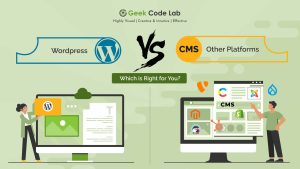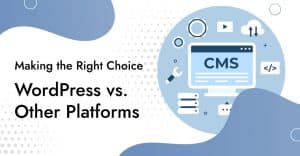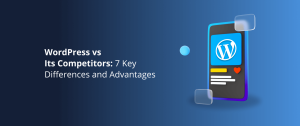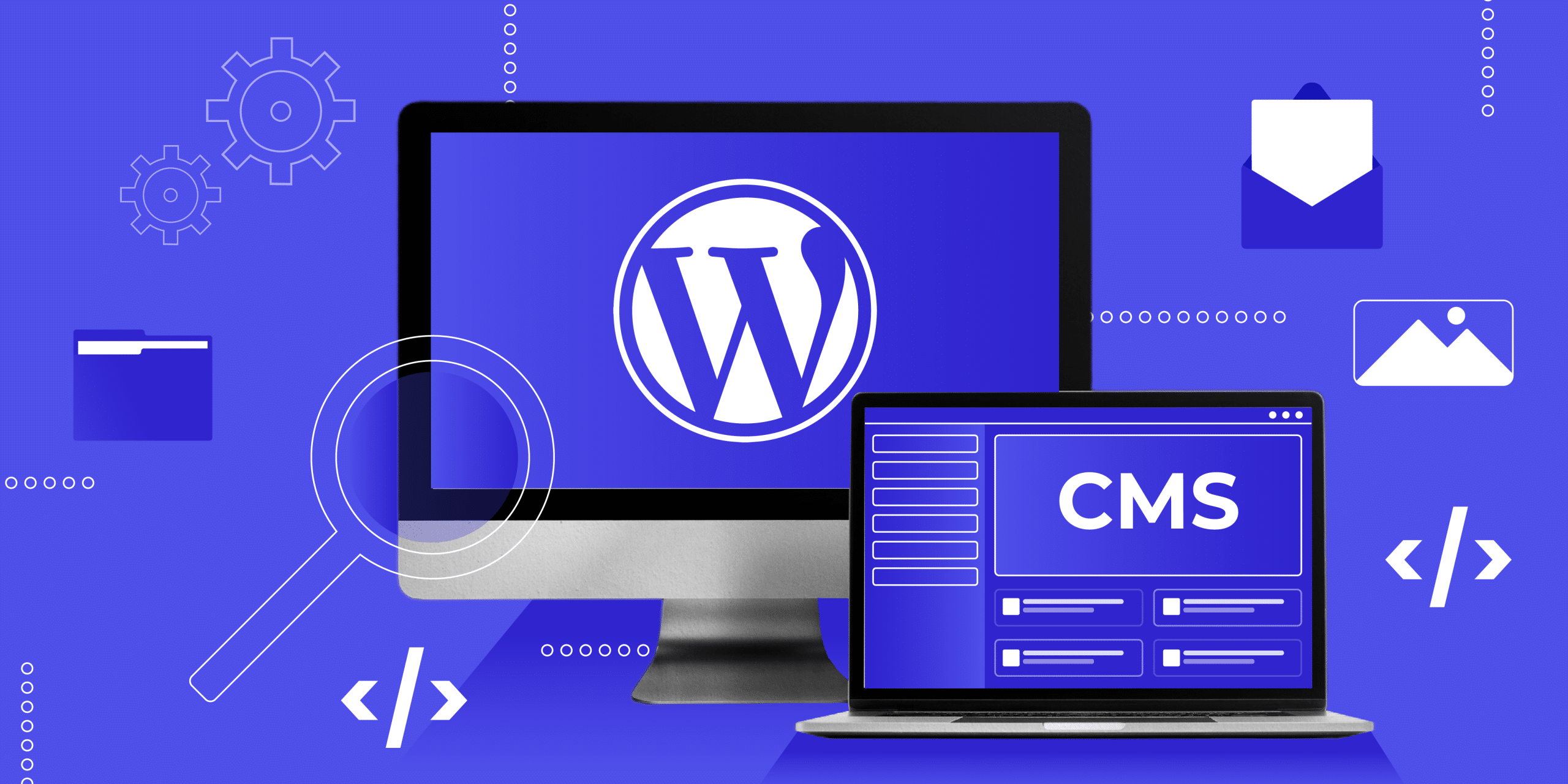WordPress Advantages Over Other Platforms
WordPress has established itself as a dominant force in the realm of website development and content management systems (CMS), as it is responsible for powering more than forty percent of all international websites. WordPress continues to be the most popular choice among developers, businesses, and bloggers, despite the fact that competing platforms such as Wix, Squarespace, and Shopify each have their own set of distinctive advantages. In this post, we will discuss the reasons why WordPress continues to be the most popular platform for the building of websites, as well as the advantages that WordPress offers over its competitors.

1. Complete Customization Flexibility
Open-Source Freedom
One of the most significant benefits of using WordPress is that it is an open-source platform. WordPress, in contrast to many other platforms, provides users with complete freedom to tweak and modify the code as they see fit. What can be done with a WordPress website is essentially limitless because developers have access to the complete source code. This means that there are virtually no restrictions. In contrast, platforms such as Wix and Squarespace have proprietary systems that offer limited customization options. This can be a limitation for expert users who are interested in developing websites that are highly suited to their specific needs.
Thousands of Themes and Plugins
Users of WordPress have access to a vast library of themes and plugins, which enables them to incorporate nearly any function into their website without any difficulty. Users have the ability to add anything they want, including eCommerce capabilities, SEO tools, contact forms, and a great deal more, thanks to the availability of over 50,000 plugins. It’s possible that platforms like Shopify or Wix have fewer plugin options or restrict access to extensions developed by third-party developers. Users of WordPress have an advantage over users of other platforms because of the level of flexibility that grants them the ability to scale the functionality of their website to meet their specific requirements.
2. SEO-Friendly Architecture
SEO Optimization Flexibility
WordPress is well-known for having an architecture that is friendly to search engine optimization. This software gives customers the ability to optimize every aspect of their website for search engines, including the creation of individualized meta tags and alt text for images, as well as the modification of URL structures. Yoast SEO and All in One SEO are two examples of sophisticated SEO plugins that integrate easily with WordPress. These plugins offer extensive functionality that may be used to optimize content, create XML sitemaps, and improve readability.

There are other platforms, such as Wix and Squarespace, that include SEO capabilities; however, these tools are typically lacking in sophistication and are restricted in scope. Due to the fact that it provides users with significantly more granular control over SEO components, WordPress is the best option for customers who are serious about increasing their overall search engine rankings. https://diversewebsitedesign.com.au/website-development-lilydale/
Fast Loading Times with the Right Setup
Users of WordPress are also able to optimize their websites for speed, which is essential for search engine optimization and the overall user experience. Websites built using WordPress are able to achieve faster loading speeds by leveraging cache plugins, lightweight themes, and image optimization technologies. It is possible that other platforms do not provide the same degree of flexibility when it comes to the optimization of performance options. Because of its more inflexible infrastructure, Squarespace and Wix, for example, are notorious for having load times that are significantly slower.
3. Ownership and Control
Full Control Over Your Data
Users have complete ownership and control over their website and all of its data when they utilize WordPress. Wix, Shopify, and Squarespace are examples of platforms that may impose limitations on the exporting or relocating of your website. This stands in stark contrast to the aforementioned platforms. One example is the famously difficult process of moving a website from Wix to another platform, which frequently results in the loss of material or layouts that are compromised.
Users of WordPress have the ability to simply back up their data, export their material, and switch to multiple hosting providers without losing any of their information using WordPress. This liberty guarantees that WordPress users will never be confined to a particular content management system (CMS) or hosting platform, thereby providing them with complete autonomy over their online presence.
Scalability
WordPress is a platform that excels in scalability, enabling users to begin with a basic website or blog and then grow it into a fully functional eCommerce store or online community. Scalability can be more expensive and limiting when using platforms like as Shopify or Squarespace because of the limited variety of functionality and plugins that are compatible with these platforms. Because of its open-source nature and huge plugin ecosystem, WordPress is able to expand to meet your requirements, making it a great platform for websites of any size or purpose.
4. Cost-Effective Solutions
Free to Use
The fact that WordPress can be downloaded and installed without cost makes it an extremely cost-effective alternative for both personal projects and websites that are used for professional purposes. Hosting and premium themes or plugins are the only things that users are required to pay for, and they may be customized to match any size budget. Squarespace and Shopify, on the other hand, are examples of platforms that come with monthly subscription prices that increase in accordance with the amount of storage and functionality that are required. Users have the ability to select premium add-ons that are within their financial means, despite the fact that WordPress may require some financial commitment for premium add-ons.
Wide Range of Hosting Options
It is possible for users to select their own hosting provider because to the flexibility that WordPress offers in terms of hosting alternatives. This implies that you can choose to start off with a hosting solution that is more economical, and then as your traffic rises, you can upgrade to a hosting solution that is more powerful. Users of other platforms, such as Wix and Squarespace, are required to use their own hosting providers. This restricts the number of alternatives available to them and makes it more difficult to adjust cost and performance based on their specific requirements.
5. Strong Community Support
A Global Community of Developers and Users
The growth of WordPress is fueled by the contributions of a large worldwide community of users, designers, and developers who work together to make it possible. You may access a plethora of expertise through support groups, online tutorials, and forums. This is true whether you are looking for assistance with a technical issue, guidance on modification, or recommendations for themes and plugins. Despite the fact that they have their own support systems, platforms such as Shopify and Squarespace are not able to compete with the sheer breadth and openness of the WordPress community.
Frequent Updates and Security Enhancements
The WordPress software is continually updated to address issues, enhance security, and add new features. This is made possible by the robust developer community that WordPress has. Patches and updates are often released by the platform in order to stay one step ahead of potential security risks. This helps to ensure that your website continues to be secure. Although other platforms also offer security measures, it is possible that they do not update as frequently or permit the same amount of customization when it comes to the addition of security plugins and features.
6. eCommerce Capabilities
WooCommerce for Online Stores
WooCommerce is a sophisticated and highly adaptable eCommerce plugin that is offered by WordPress. It is one of the most exceptional features that WordPress provides. WooCommerce gives consumers the ability to construct completely functional online stores, giving them full control over the store’s design, payment methods, shipping choices, and product administration. When compared to Shopify, which was developed exclusively for eCommerce, WooCommerce offers greater flexibility and does not impose transaction costs that are in addition to those that are mandated by payment processors.
Integration with Payment Gateways

The WordPress platform, when combined with WooCommerce or other eCommerce plugins, has the capability to integrate with a broad variety of payment gateways, such as PayPal, Stripe, and others. In comparison to many other platforms, this offers a degree of independence that is not available. If you use third-party payment gateways rather than Shopify Payments, for example, you will be subject to additional fees from Shopify. When you use WordPress, you have the freedom to select the solution that is most suitable for your requirements without incurring any additional expenses.
Conclusion
When compared to other website-building systems, WordPress has a number of advantages, including its open-source flexibility and extensive plugin ecosystem, as well as its improved search engine optimization skills and complete control over data. WordPress offers a level of customisation, scalability, and cost-effectiveness that is simply unmatched by other platforms. This is true regardless of whether you are developing a straightforward blog, a website for your business, or a full-fledged eCommerce store. Anyone who is interested in establishing a strong online presence should consider using WordPress as their platform of choice because of its vast range of features, its thriving community, and its frequent upgrades.





